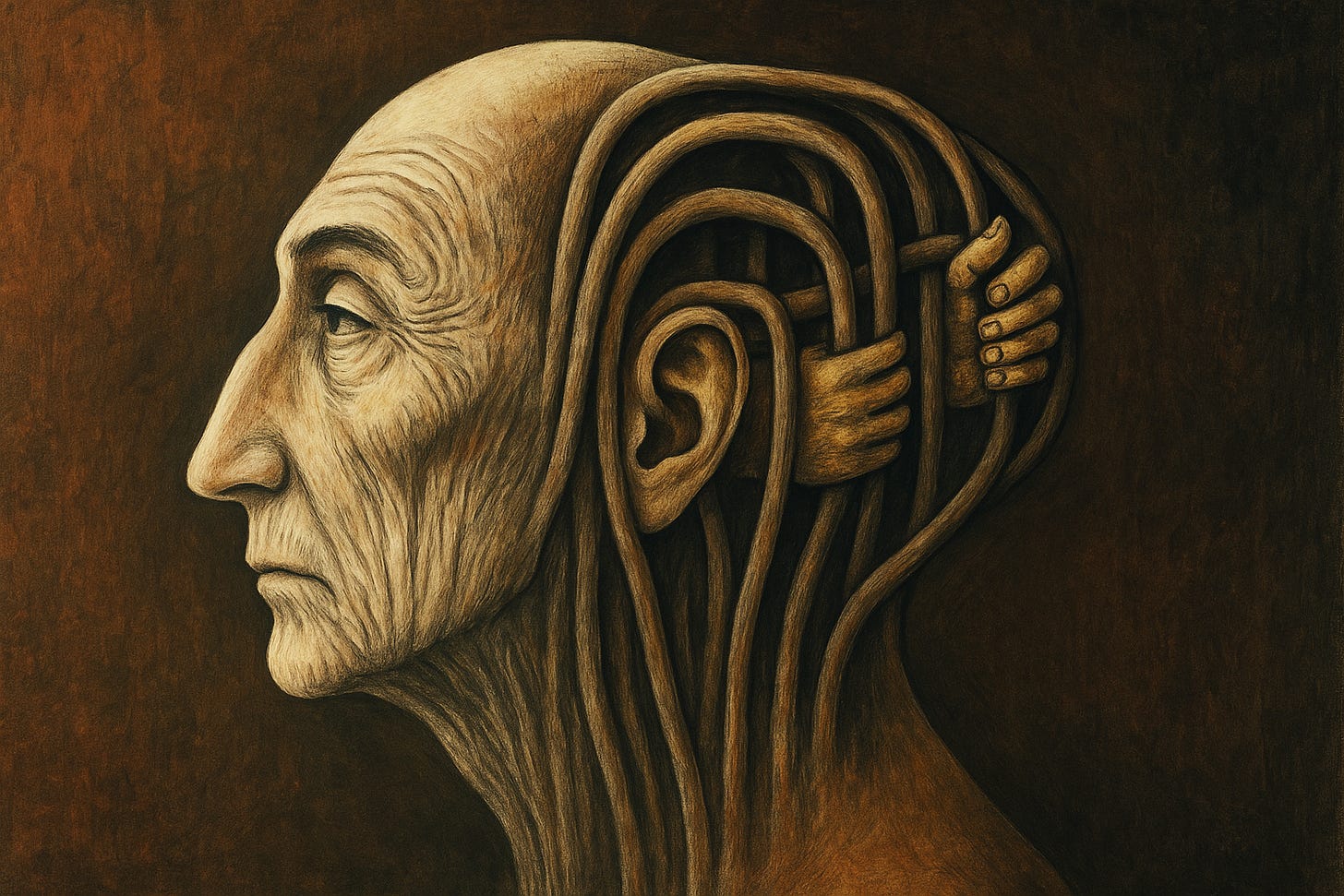6 Psychological Strategies to Build Habits That Stick
What Gets Rewarded Gets Repeated. What Gets Punished Disappears.
There was once a stonecutter who spent his days hitting a big rock with a hammer.He hit it once, twice, a hundred times, and nothing happened.People laughed and said he was wasting his time.But the stonecutter kept going.On the 101st strike, the rock finally broke.It wasn’t the last hit that broke it, it was all the hits before that.
Building good habits is the same.You don't need one big moment. You need small actions, done again and again, even when you feel like giving up.
Here are 6 simple strategies to help you build habits that actually stick.
1. Pretend Your Future Self Will Be Weak and Lazy
Your future self is you, but with more hunger, more irritation, and more Netflix than you ever want to admit.
If you construct habits on the basis of future-you being better, stronger, and more organized than you, you're gonna be in trouble.
Your future self won't be stronger (assume).
Bad habits don't get easier with time.
Assume that future you will be tired and distracted.
Plan as if future you needs babysitting.
Take care of future-you like a raccoon that has discovered a half-open trash can. Be prepared.
2. Cue the Action
All of your bad habits initially started out as a solution.
Smoking? Solved stress.
Three hours spent browsing TikTok? Boredom solved.
Informing your boss, "I'll circle back," and then ghosting? Cleared up short term anger problems.
Every bad habit started as a solution.
Habit loop = Cue → Routine → Reward.
Bad habits can feel rewarding even if they aren't.
You can hijack the same system for good habits.
Bad habits persist because they worked. Once.
They label it the Habit Loop.
Cue → Routine → Reward.
You smell coffee → you make coffee → your brain gets a rush of pleasure that says "good human."
The cycle will still function when the reward is entirely illusory, such as just keeping on staring at your MySpace messages. (Tip: Tom is not responding.)
In order to create good habits, you must know the system.
Include a cue to the action you want.
Wake up → put on sneakers → walk for three minutes.
Read your journal → write a sentence.
Get rejected → go on and apply for three additional jobs and eat peanut butter directly from the jar.
Make the cue, and sooner or later, you'll do it on autopilot.
3. Make Rituals, Not Resolutions
We don't do things because they are good for us.
We do it because it's pleasurable, like 3 AM Hot Cheetos binge that you'll apologize for in the morning.
B.F. Skinner was a scientist who showed how rewards change behavior. He put pigeons in a box and gave them food every time they did something he wanted, like hitting a ball.
Slowly, the pigeons learned to hit the ball back and forth, like playing ping pong. Skinner proved that if you reward a behavior, it happens more often. We humans are the same, we keep doing things that give us rewards.
We act based on pleasure, not logic.
Rituals survive when motivation dies.
Your brain loves habits over willpower.
Brushing teeth = prime example of a ritual.
The fact is, your "willpower" is typically a guest, not a resident. In order to have habits that actually survive Tuesday, you require rituals.
A ritual is something you do because it's hardwired into your brain, not because you had some motivational poster moment about it.
Keep in mind, the brushing of your teeth is not some great feat of life. You just do it. That is the game.
4. Use If-Then Thinking If You Are Not Motivated
We all know Motivation is like that friend who's like, "we should totally hang out" and then moves to a different state without informing you.
If you leave it for when you "feel like it," congratulations, you've lost without even knowing it.
Motivation is unreliable and vanishes fast.
Planning beats relying on feelings.
Think like this: "If X happens, then I will do Y".
Tiny decisions made ahead create massive results.
"If X happens, then I will do Y."
Example:
"If I have finished eating dinner, then I put on my shoes and walk around the block."
"If I do open up Instagram, then I shut it down after 5 minutes unless I am looking for recipes or cat videos."
It is stupidly simple sounding because it is.
And it does.
Because the decision is already made. You don't get to stay there, torturing yourself over if tonight is a night to take a walk or a night to argue your certain mortality in kettle chips.
Honestly, you can be half asleep and still follow If-Then plans better than waiting for the "perfect mood."
5. Starve the Habit, Feed the Emotion
Here’s something a lot of people don’t get:
You don’t really want the bad habit itself.
You want the feeling it gives you.
Smoking feels like stress relief
Snacking feels like comfort
Scrolling feels like escaping your boring life for 20 minutes
If you just yank the habit out but don’t deal with the feeling.
Then, your brain will go looking for another bad habit to stick in its place, maybe even craving than before.
So you gotta:
Make the bad habit harder to do
Find a better way to feel the thing you actually want
Give yourself a real replacement, not just "stop it" orders
If you try to destroy a habit without feeding the emotion that gave birth to it, you're basically cutting the top off a weed and calling it gardening.
Starve the habit → that is, make it hard to get.
Feed the emotion → that is, find some other way to meet that need.
Point is, you must substitute the habit with something else that occupies the same emotional pothole.
Otherwise, your mind will run amok and snatch the nearest cookie, cigarette, poor decision, or 2AM text message it can get.
And nobody needs to see that.
6. Act Like the Person You Wish to Be
You won’t suddenly become a millionaire one morning just because you made a wish at 11:11 (I know you have done this at least once)
You are already becoming whatever person you act like every day
There’s a thing called Identity-Based Habits.
It means if you believe you are “the kind of person who….”
You start doing the things that kind of person does.
You act out the identity you believe in about yourself.
Acting "as if" changes your real habits.
Tell yourself you’re a writer, and you will write. Even if it sucks some days.
If you keep saying you’re lazy, you’ll act lazy.
So at the end, you are what you repeatedly act to be.
Because our mind doesn't like inconsistency. Your brain will do something about it when it's not what you think you're doing. Typically by altering the behavior or creating a very long, complicated excuse.
Call yourself whatever you want to call yourself.
Even if it does not seem likely at first. Especially then.
Here's the bottom line. You build habits because your future, you will not always feel strong or smart. You make life easier for yourself, so think like that, and your brain will at least spare 1% of its power for it.
Wait a Sec
I share insights like this every 1-3/week—ones that actually change how you think. Don’t miss the next one.
Join 4521+ readers.
Thanks for your time 🙏






Loved it! Super helpful strategies and the way it's written it's wonderful! =) I laughed, smiled and felt totally connected to this article!
Thank you for your insights =)
Pretty much what Atomic Habits by James Clear says.